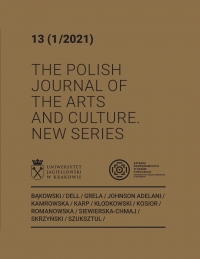Cultural Conceptualizations of shame & dishonor in Early Poetic Arabic (EPA)
Cultural Conceptualizations of shame & dishonor in Early Poetic Arabic (EPA)
Author(s): Bartosz PietrzakSubject(s): Historical Linguistics, Sociolinguistics, 6th to 12th Centuries
Published by: Wydawnictwo Uniwersytetu Jagiellońskiego
Keywords: Cultural linguistics; shame; dishonor; Early Poetic Arabic; pre-Islamic Arabic Culture;
Summary/Abstract: Persisting in a binary relationship with honor, shame was an important element of the pre-Islamic Arabic social evaluation system. In my study, I analyzed the two most important EPA concepts parallel to English shame – ˁayb and ˁār – applying the Cultural Linguistic approach. Based on the analyses on corpus of Early Arabic poetry and Classical Arabic dictionaries, I represented cultural schemata encoding the knowledge shared by pre-Islamic Arabs about those phenomena. The paper presents also metaphoric, metonymic, and image-schematic models, which account for the specifics of associated linguistic frames. Moreover, I posit a hypothesis on the existence of a schema subsuming the honor- and shame-dishonor-related schemata in form of social evaluation of usefulness, which seems to correspond to the historical and linguistic data.
Journal: The Polish Journal of the Arts and Culture. New Series
- Issue Year: 14/2021
- Issue No: 2
- Page Range: 73-94
- Page Count: 22
- Language: English

